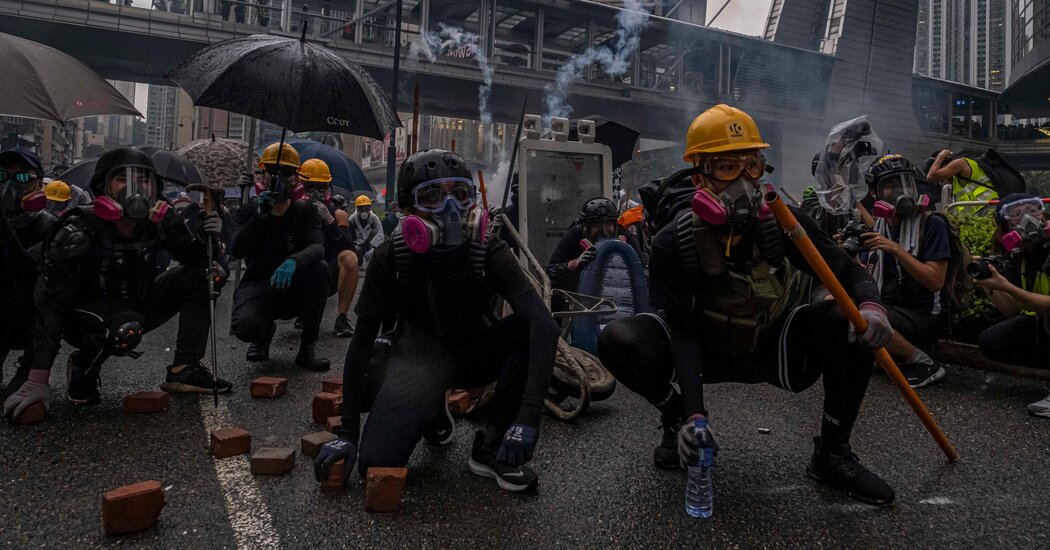Pelosi has a history of criticizing China’s human rights record.

To longtime watchers of American foreign policy, Speaker Nancy Pelosi’s visit to Taiwan reflects her decades-long interest in China — and her willingness to criticize its government.
From student demonstrators in Beijing in 1989 to anti-government protests in Hong Kong 30 years later, Ms. Pelosi has consistently supported social movements that critiqued China’s ruling Communist Party. She has also urged China’s leaders to temper their authoritarian policies, criticism that has elicited tart ripostes from Chinese officials.
One of the seminal moments in modern Chinese history — troops opening fire on student protesters around Beijing’s Tiananmen Square in 1989, killing hundreds if not thousands — occurred two years after Ms. Pelosi was first elected to Congress. She responded by leading a House resolution condemning China’s actions, and saying that the “human rights of the people in China are not an internal matter” but a concern for the whole world.
If Chinese officials are “not afraid of the truth, and if their denials hold up, then they shouldn’t be afraid of a delegation coming from the Congress to visit China to see for ourselves what’s going on there,” she told reporters at the time.
Two years later, Ms. Pelosi visited Beijing and unfurled a banner in Tiananmen Square that read: “To Those Who Died for Democracy in China.”
When rights activists gathered in San Francisco in 1994 to unveil a pro-democracy statue modeled after a 40-foot-high one that had been crushed by a tank in the square in 1989, she lamented what she called China’s “brutal suppression of individual freedom and liberty.”
Ms. Pelosi has also met on multiple occasions with the Dalai Lama, the exiled Tibetan spiritual leader, and used those meetings as a platform to criticize China’s policies in Tibet, a region it absorbed beginning in 1950.
During a 2008 trip to the Dalai Lama’s headquarters in India, Ms. Pelosi described protests against Chinese rule that were unfolding in Tibet at the time as “a challenge to conscience of the world.” After returning to Washington, she called on President George W. Bush to boycott the Beijing Olympics in 2008, citing the Chinese government’s crackdown on protesters in Tibet.
In June 2019, when protests over a draft extradition bill began to engulf Hong Kong, Ms. Pelosi praised demonstrators as “courageous.” She said the bill — which would have allowed extraditions to the Chinese mainland — “chillingly showcases Beijing’s brazen willingness to trample over the law to silence, dissent and stifle” freedom in the former British colony.
That fall, as protests continued to rage in the city, she piled pressure on Beijing by meeting with high-profile Hong Kong activists in Washington. She said people protesting in the Chinese territory had her “full support and admiration,” and she slammed a decision by Hong Kong officials to bar the activist Joshua Wong from running in local elections.
Chinese officials have never welcomed her criticism. In many cases, they have pushed back with stern language of their own.
During Ms. Pelosi’s 2008 visit with the Dalai Lama in India, for example, the Chinese ambassador to India called Tibet an “internal affair” and warned that “any attempt to cause trouble to China is doomed to fail.”
And in 2019, a Chinese Foreign Ministry spokeswoman, Hua Chunying, said Ms. Pelosi was partly to blame for the civil unrest gripping Hong Kong, where some activists had been trying to draw the United States into their movement.
“It is precisely because of the naked cover-up and connivance of external forces such as Pelosi that the violent anti-law forces are even more fearless,” Ms. Hua said.